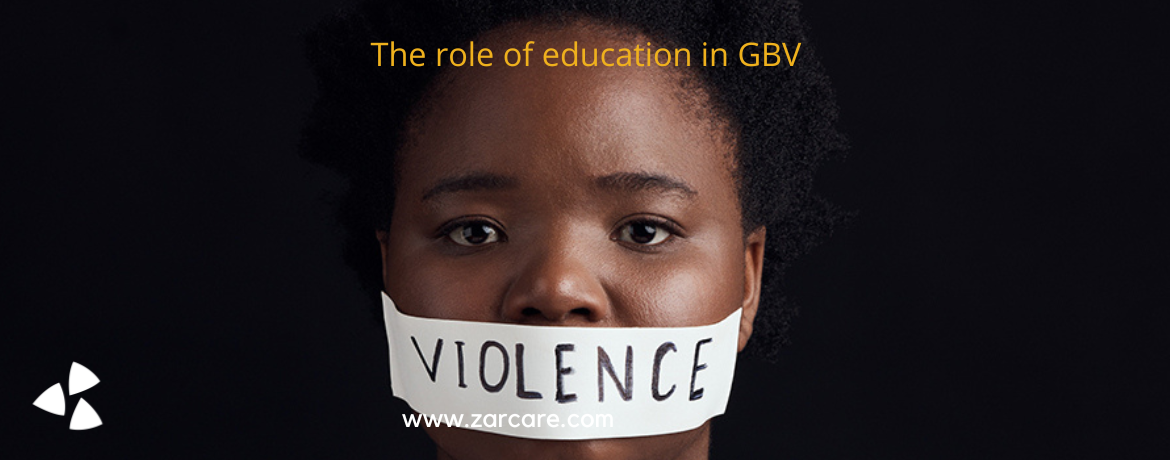GBV: The Role of Education in Gender-Based Violence in South Africa

Gender-Based Violence (GBV) remains a pervasive issue in South Africa, impacting individuals of all ages and genders. Education plays a crucial role in addressing and preventing GBV by fostering awareness, promoting gender equality, and empowering individuals to challenge harmful norms and behaviours. This article explores the impact of education on GBV and highlights the importance of integrating GBV prevention into educational curricula and policies. GBV encompasses a range of harmful behaviours, including physical, sexual, emotional, and economic abuse, often rooted in gender inequality and power imbalances. In South Africa, GBV is prevalent in various settings, such as homes, schools, workplaces, and communities. The country has implemented several policies and programs to combat GBV; however, challenges remain in effectively addressing the issue. Raising Awareness: Education is a powerful tool for raising awareness about GBV and its impact on individuals and communities. By incorporating GBV topics into school curricula, students can learn about the different forms of violence, their consequences, and ways to prevent and respond to GBV. Promoting Gender Equality: Education promotes gender equality by challenging traditional gender roles and stereotypes. Teaching students about the importance of equality and respect for all genders can help create a more inclusive and equitable society. Empowering Individuals: Education empowers individuals to recognize and challenge GBV. By providing students with the knowledge and skills to identify and address GBV, education can help foster a culture of accountability and support for survivors. Creating Safe Spaces: Schools and educational institutions must create safe and supportive student environments. This includes implementing policies and practices that prevent GBV, such as anti-bullying programs, gender-sensitive curricula, and support services for survivors. Engaging Communities: Education can engage communities in the fight against GBV by involving parents, teachers, and community leaders in awareness-raising and prevention efforts. Community-based programs can help address the root causes of GBV and promote a culture of non-violence. Despite education’s potential to prevent GBV, several challenges remain, including limited resources, cultural barriers, and resistance to change. However, there are also opportunities to leverage education for social change. By investing in comprehensive GBV prevention programs and fostering collaboration between schools, communities, and government agencies, South Africa can significantly reduce GBV. In South Africa, a multitude of institutions, organizations, and websites are dedicated to raising awareness and educating the public about Gender-Based Violence (GBV). Here are some prominent organizations making a significant impact in this critical area: 1. People Opposing Women Abuse (POWA): This vital organization is committed to supporting women who have experienced abuse. It provides a range of services, including confidential counselling to help survivors heal, legal support to navigate the complexities of the justice system, and advocacy efforts to influence policy reform to promote women’s rights and safety. 2. Rape Crisis: Focused on supporting survivors of sexual violence, Rape Crisis offers free counselling services tailored to the needs of rape survivors. They also conduct community workshops for education and prevention, fostering a culture of understanding and support. With offices in Cape Town, their multilingual services ensure accessibility to diverse communities. 3. Masimanyane Women’s Rights International: Operating throughout the Eastern Cape, Masimanyane is dedicated to empowering women and promoting their rights. They provide comprehensive services, including HIV/AIDS counselling and sexual and reproductive health education, complemented by community-based programs that engage local populations in important discussions about women’s health and rights. 4. Rural Development Support Program (RDSP): This organization is focused on uplifting rural communities by promoting human rights and addressing the unique challenges faced in these areas. RDSP engages in initiatives aimed at poverty alleviation and the prevention of GBV, thereby fostering safer environments for women and children. 5. SaferSpaces: Addressing the critical issue of GBV within educational institutions, SaferSpaces works to create awareness and provide resources tailored for students and staff at higher education campuses. They aim to foster safe environments conducive to learning and personal growth. 6. Centre for the Study of Violence and Reconciliation (CSVR): This esteemed research organization delves into the complex issues surrounding GBV, conducting studies that inform policy and practice. By providing valuable resources, CSVR seeks to develop effective interventions that can better address the needs of survivors and the community. 7. National Department of Basic Education: Recognizing the importance of addressing GBV within schools, this government department implements programs and provides resources to safeguard students. Their initiatives focus on creating a safe and supportive educational environment for all learners. 8. EndGBV Africa: This informative website is a comprehensive hub for understanding the legal frameworks, policies, and resources related to GBV in South Africa. It aims to equip individuals and organizations with the knowledge necessary to combat GBV effectively. These organizations and resources play an essential role in raising awareness and providing much-needed support and advocacy for the prevention of GBV across South Africa. For those seeking more information or specific assistance, reaching out to these organizations can be a valuable step toward empowerment and change. There are several institutions, organizations, and websites dedicated to educating people about Gender-Based Violence (GBV) in South Africa. Here are some notable ones: Education is a vital component in the fight against GBV in South Africa. By raising awareness, promoting gender equality, empowering individuals, creating safe spaces, and engaging communities, education can significantly contribute to preventing and addressing GBV. Continued efforts to integrate GBV prevention into educational policies and practices are essential for creating a safer and more equitable society.Understanding GBV in South Africa
The Role of Education in Preventing GBV
Challenges and Opportunities
Seeking Education and Information
Conclusion
